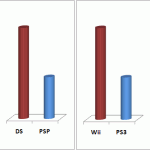Welcome to another edition of the WNR. I have a feeling this is one of those editions where the number of news items is actually not all that great, but they’re all stories well made for a good rant or two (of five), and so it’s one where people are going to have a look, and say “oh no, not another ******* essay”. If by essay, you mean angry incoherent rant, that is. So let’s get started.
 So let’s start this week with copyright news, the rantiest of sections, as per usual. While politics in Washington seems more and more divisive, with the entire system almost grinding to a halt this week, and the two major parties locked in an epic ideological struggle, there still exists some signs of cooperation between the major political entities. Unfortunately, the cooperation only seems to exist when the issue of copyright is being discussed, which suggests that the MPAA and RIAA’s lobbying effort has been a very apolitical one.
So let’s start this week with copyright news, the rantiest of sections, as per usual. While politics in Washington seems more and more divisive, with the entire system almost grinding to a halt this week, and the two major parties locked in an epic ideological struggle, there still exists some signs of cooperation between the major political entities. Unfortunately, the cooperation only seems to exist when the issue of copyright is being discussed, which suggests that the MPAA and RIAA’s lobbying effort has been a very apolitical one.
The only political contest, in relation to copyright, has been from parties and members competing to show just who loves the entertainment industry the most, and it is one fierce fight for the title of teacher’s pet. The House Committee on Intellectual Properties have been holding hearings all week, grilling the likes of Google (more on that later) on copyright issues, and trying to pass new legislation, that COICA thing I mentioned last year. The MPAA has taken the opportunity to hail the success of Operation In Our Sites, the Homeland Security ICE operation that seized dozens of websites suspected of providing copyrighted content. Yes, this is the same operation that seems to have had no actual effect on piracy activities on the Internet, an operation where many of the closed websites have already been replaced with new websites, or even the same websites under a different domain name, the same operation led by a junior agent whose legal paper work consisted mainly of copying/pasting previous MPAA statements on copyright, and an operation where due process was bypassed, where those accused did not have adequate avenues of appeal, and where we know for a fact that a lot of the closures were questionable to say the least (including a few websites with good credibility within the industry for allowing artists places to leak content to for promotional purposes, but ones that the RIAA didn’t personally approve because it might have threatened their domain, and so had the US government close these websites just to be sure using piracy as an excuse).
And of course, in US politics these days, it’s all about jobs. Except the fact that nobody is actually lo0king to put in any concrete actions to create any jobs, the “oh noes, piracy costs jobs” excuse has been brandied about quite a lot this week. You see, COICA is not about making the FBI, Homeland Security and ICE the private police force of the MPAA/RIAA, allowing them to bypass due process if and when needed. No, COICA is about protecting “property rights and American jobs”, and it’s so great that it will “not only save jobs” it will mean the United States can even “gain jobs”. And before you want to point to a political party and blame them for all of this, you cannot, just like you couldn’t really with the Global Financial Crisis, the investment banks and the fiscal and regulatory policy at the center of it, because this baby is a bi-partisan effort, which in Washington these days just means the lobbyist managed to distribute financial favours in an equal and fair manner, to all concerned, no one was left out. How socialists of them. Why spend millions on research and development, testing new innovation and meeting market demands, when you can simply bribe the right people to get the tax payers to fight your fight. And that’s exactly what is happening, with COICA promising millions and millions of tax payer money to help the MPAA and RIAA not have to change their business model, even as the two parties bicker over trimming the deficit.

Congress asks: If Google can topple a government, with a tiny little bit of help from the people of that country, why can't it stop piracy?
But to fight the publicly funded fight, you have to have a target. And this week, the target was Google. A bi-partisan show was put on to allow Google to testify in front of the House Committee on Un-Authorised Downloads Activities, but the show trial was really just an occasion for the MPAA/RIAA’s intentions to be heard, via the mouthpieces they’ve already paid for. So why isn’t Google filtering results for pirated contents, asked one mouthpiece. Why is it that Google can stop child pornography but not stop copyright infringement, asked another. Because it’s quite clear that both types of activities are just as illegal and serious as the each other, and so warrants the same type of attention (if not more for MP3 downloads, because there’s no lobby for stopping child pornography, is there?). Even when Google tried to respond that spotting child pornography is a bit easier than trying to find out which YouTube uploads used which company’s songs and who actually holds the copyright, the search engine giant was accused of of having a lack of will when it comes to stopping piracy. I mean, if Google can topple the head of a country in weekend, one politician asked, why can’t Google stop “facilitating illegal content and illegal products”? I mean it’s not like the Tunisian or Egyptian people had anything to do with what happened in those countries, right? Yeah, they helped, but Google did most of the work, and so should do most of the work when it comes to stopping the revenue decline of the entertainment industry.
The MPAA was also busy this week suing video rental website Zediva this week. Zediva had attempted to bypass the MPAA studio imposed digital streaming licensing fees, otherwise known as the anti-innovation tax, by doing something, at least to me, felt very clever. Instead of purchasing the right to stream content over the Internet, Zediva allowed people to rent physical copies of movies, and instead of sending out those copies, they streamed the content to customers and put the physical copy to one side to preserve the one viewer/one copy relationship. In other words, Zediva helped you to play the disc you rented, over the Internet, for you. And this allowed the company to skip paying the overpriced streaming license. Remember these are the same people that don’t even like it when you try to stream your discs from your lounge room to your bed room, so it’s no surprise that streaming across the entire Internet, even if a physical disc was there somewhere, was going to get the MPAA angry. And trust me, you won’t like it when the MPAA is angry. That somehow Zediva can get away with having lower expenses by actually having a physical copy of a disc for ever person that wants to stream the movie, suggests that perhaps the whole point of going digital and away from the physical (ie. lower manufacturing, duplication, transportation costs, and greater economy of scale with *more* people being able to access *more* movies, leading to lower prices) seems to have been lost.

In 3D/HD news, a bunch of researchers in the UK have conclusive proof that if you get paid to do a study by a group with special interests, the results of your study might just be exactly what the special interests group had wanted to get out of the study.

I wonder if the 3D Blu-ray version of My Dinner with Andre would still be 7% more stimulating than the regular Blu-ray version
I kid. Seriously, researchers at the Sussex Innovation Centre has found, through the painful sounding skin conductance tests and EEGs, that viewers are more emotionally stimulated when watching 3D Blu-ray compared to Blu-ray, and Blu-ray compared to DVDs. Yes, the study was paid for by the European Blu-ray Disc Association, but science is science. So there you have it, scientific evidence that Blu-ray is in fact better than DVD, and that 3D Blu-ray is the best of all. Of course, assuming they used the same movie for comparison, watching a movie made for 3D, in 2D, is basically watching a bunch of gimmick shots that make no sense at all in 2D (“what kind of message is the film-maker trying to purvey, about the relationship between society’s ills and the total lack of compassion in today’s youth, in that scene where the five ping pong balls fly towards to camera”). If somebody ever makes a 3D version of My Dinner with Andre (yes, I watched *that* Community episode), and then use that to do the above test, I wonder if 3D Blu-ray would still come out 7% “better” than the 2D Blu-ray version (and the Blu-ray version being 12% “better” than the DVD version).
Much maligned rental company Redbox, in trouble for daring to make DVD (and now Blu-ray) rental easier and cheaper than it should be, may be hooking up with Hulu Plus, if it ever actually launches its digital service. Hulu, being owned by an actual movie studio, hasn’t really been under attack by the industry, which is strange considering it’s one of the best ways to watch free TV shows, even for those outside of the allowed regions if you’re clever enough with a VPN, making it a very good alternative to piracy (even though the actual result is the same, in that I didn’t wait for the local airing of the show, denying the local station advertising money and denying studios greater licensing fees, and also didn’t buy the show on iTunes or DVD, if it’s there, and denying the studio further income). I guess it’s not just that Hollywood doesn’t want innovation, it just doesn’t want innovation to come from places and companies where it had no control over. So not anti-competitive at all, really.
And an update on my Godfather II Blu-ray disc problem that I posted about last week, Technicolor were nice enough to offer a replacement disc even though from what they’re telling me, they’re not really in charge of Australian market, nor have they encountered this problem with Australian discs.
![]()
And finally in gaming, Anonymous is now targeting Sony, and so if your PSN connection has been on the fritz, then you know why. They’re attacking Sony’s servers because of Sony’s treatment of hackers geohot and Graf_Chokolo, amongst others.
I’m only surprised that they didn’t do this earlier, considering Sony’s history with DRM, copyright protection, and the fact that they are active members of both the MPAA and RIAA, earlier targets of Anonymous. A typical Sony response would be to block entire IP ranges where they suspect the attack may be coming from, and this may be why your PS3 cannot connect to PSN temporarily.

Nintendo may only make "babysitting" consoles, but they sure do sell a lot more of them compared to Sony's "real" machines
But for all of the PlayStation’s troubles recently, the head of Sony Computer Entertainment America, Jack Tretton, is bullish about the prospects of the PS3 and the company’s next portable gaming system, the NGP. And Sony being bullish means they have to attack their rivals, in an almost arrogant manner (almost?). Attacking both the Wii and Xbox 360 for running out of steam, Tretton laughed at the fact that the Wii (and I guess the cheaper version of the Xbox 360) does not come with a hard-drive, that the Wii’s motion control system is “cute” but not effective, and that only the PS3 has the staying power as it is “just hitting its stride” 4 years after launch. The most curious attack was against the DS, in particularly the new 3DS, which Tretton called “for children”, and that no “self-respecting twenty-something” would have anything to do with a portable console that has sold more than twice as many units as the “superior” PSP. Then Tretton went on to big up the NGP, which he says will have every “every [bell and] whistle”, even if the sale price is likely to be much higher than the 3DS (or if not, then Sony would have to eat up a lot of that in losses).
Where to start …
Despite the PS3’s technical advantage, are games on the platform *that* much more technically advanced as similar games on the Xbox 360? With the PS3’s superior graphics, sound, storage, are games on that platform so much more fun than even the game that came free with the Wii? Does superior technology actually translates to fun?
Sure, the PS3 is likely to outlast the Xbox 360 (well it should, considering the 360 was launched a year earlier), and definitely the Wii, but for how long? So when Microsoft releases the Xbox 720 using today’s best technology, are Sony confident that their PS3 can still compete, and for how long? Another 6 years from now to bring the PS3 to the promised 10 year lifecycle?
As for the DS being for babies or whatever Tretton was trying to say, is that really a bad thing, you know, to make games and game consoles for families and children? Isn’t this how the video game industry started? And isn’t that how the industry is evolving (back) towards once again? And you might as well include smartphone gaming as well, because I’m pretty sure Angry Birds’ colourful birds, slingshot, and green pigs, is not geared towards your average tech-savvy 20 year old male.
But Sony have a right to solely produce consoles aimed at a specific demographic, the twenty-something male, but that’s just another way of trying saying they’re making a console that ignores all the other demographics. Just don’t be surprised when you’re not making as much money as the other companies. While the company is busy trying to convince hard-core gamers that the Move is for them, Microsoft is simply busy selling Kinect’s, and making money off families and children that like that sort of thing (while still happily making money off hard-core gamers).
And if Tretton’s stance is any indication, the NGP will fail in the same way the PSP failed, by concentrating too much on the technology, and not enough on actually making the thing fun and stuff. I’m sure the NGP is superior to the 3DS in all ways possible, heck, maybe even the PSP is already superior, but will it be more fun? I don’t give a damn if it can run PS3 graphics or not, because I don’t want to play PS3 games designed for a 50″ screen on a 5″ screen, and I’d rather have a game designed specifically to get the best out of the portable experience, than a game that only has superior graphics.
And just like the Xbox 360, I’ve run out of steam (ranting uses a lot of steam, you see). See you in a week’s time.

